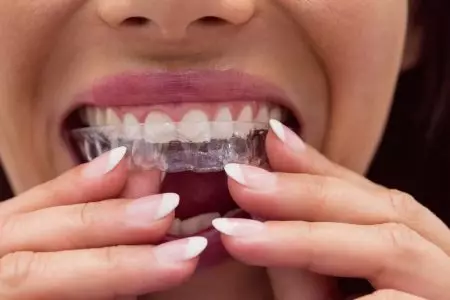Implantation is the most reliable way to restore a lost tooth. Many people are afraid of dentists, so they come to the clinic when the tooth cannot be saved. In this case, it has to be removed together with the root. With the help of an implant it is possible to restore the chewing function and the beauty of the smile. Many people are afraid of this procedure because the implant will not take root. Is this possible and how long does it take to take root? Let’s explore.
What are implants?
Many people think that an implant is an artificial tooth. This is not entirely true. An implant is an artificial replacement for a lost tooth root. It is a post that is screwed into the bone. It is then fitted with a crown that mimics a real tooth. The crown is made according to the patient’s individual impressions.

There are 2 kinds of dental implants:
- Solid. This is a dental implant that is hollow on the inside. During insertion, it is covered with a special plug. If the prosthesis takes root well, the plug is removed. Then a metal abutment is placed in the hole, on which the crown is fixed.
- Collapsible. In this case, the implant itself is rigidly fixed, which is implanted into the bone of the jaw. The anchorage is placed on the post and then the denture is snapped into place. The advantage of this design is that the crown can be changed or adjusted.
In each specific case, the specialist offers the visitor of the dental clinic an individual prosthetic plan based on anatomical possibilities, expediency and financial possibilities.
Implants can be placed on one or more teeth. In severe cases, implants can also be placed even if there are no teeth at all. The procedure can be done under local anaesthetic or under sedation.
There is no need to wait for implants – their advantages are obvious. With these prostheses, you can restore chewing function or the aesthetics of your smile. Implants are durable and reliable, and once placed, you will not feel them as a foreign object. It usually takes 2-4 months for implants to fully engraft. The length of treatment depends on the individual characteristics of the patient.
The disadvantage of these prostheses is the possibility that the implant will not take root.
5 reasons why implants don’t take root
Basically, the healing process of the implant depends on the bone density. However, there are other factors as well. Why does an implant fail to heal? The reasons are varied. Let’s consider 5 main ones:
- Incompetence of the doctor. Implants take root 98 per cent of the time. However, if the doctor does not have the proper level of professionalism, things can go wrong. Wrong choice of manufacturer, insufficient examination, violation of protocol, negligence can lead to rejection of the construction.
- Poor-quality implant. Unfortunately, some manufacturers use poor materials that may not take root or cause complications after surgery. Such implants can be cheaper than conventional implants, and this attracts patients. It is necessary to be careful when choosing the implant itself and not to save money.
- Patient behaviour. Sometimes negative consequences are caused by the patient’s own actions – poor hygiene, bad habits, stress, nutritional disorders. If you do not follow the doctor’s recommendations, there is a possibility that the implant will not take root.
- Contraindications. Some diseases can lead to rejection of the artificial post. These include diseases of the endocrine and circulatory system, oncology, immunodeficiency and other pathologies. Therefore, it is very important to carry out a preliminary full examination.
- Taking medications. Some medications (e.g. bisphosphonates or immunosuppressants) can affect bone health and lead to implant rejection.

Sometimes bad consequences occur due to metal allergies. Note that these are quite rare cases.
Which diseases are not eligible for dental implants?
The implant procedure cannot be performed in case of periodontal disease and some other conditions. Some diseases or conditions require a temporary prohibition, while others exclude the possibility of implantation altogether.
Temporary contraindications include pregnancy, drug or alcohol addiction, rehabilitation after surgery. Also, artificial structures are not installed for persons under 18 years of age.
The procedure is temporarily prohibited for patients with dental diseases and infections in the oral cavity, such as gingivitis (inflammation of the gums), tooth decay. But after getting rid of these problems, the patient can restore the lost tooth.
Artificial structures are also not available for periodontitis. But this disease can be cured. According to statistics, 95% of adults have this disease. The symptoms of periodontitis are inflammation of the tissue around the tooth.
The specialist has the right to refuse the implant if the patient has malignant tumours. The procedure will increase the risk of new tumours forming.
The implant is also prohibited for people with hematopoietic problems, pathologies of the autoimmune system, connective tissue diseases. A serious contraindication is the presence of venereal diseases, HIV, tuberculosis.
The mental state of the patient also plays an important role. People suffering from alcoholism, schizophrenia, paranoia, paranoia, neurosis or other central and peripheral nervous system disorders will also be denied surgery.
It is very important to undergo a medical examination before agreeing with a doctor about implant placement. If you have a medical condition that temporarily prohibits the insertion of artificial structures, it is better to undergo treatment and only then go to see an implantologist.
Women should consult their doctor in advance and choose a time when they are not menstruating before approving a date for surgery. During menopause, it is also advisable to discuss your health condition with your doctor.
Patients often ask whether it hurts to place implants and how long dental implants take. You should discuss all the nuances with your doctor beforehand and prepare for the operation properly. In order to avoid pain, it is important to consult with an anaesthesiologist and choose the anaesthetic method that is best for you.
Whether it is possible to implant teeth with periodontal disease
Periodontal disease is a serious periodontal disease. Among the main consequences of this disease is the destruction of the tissue around the teeth. This is not at all favourable to the normal healing of the dental implant, but, on the contrary, is a serious contraindication to surgery.
Dental implants with periodontal disease are not able to fulfil their full function, and in certain situations may even worsen the condition. For example, the osseointegration process will be delayed or the implant will not take root properly because the bone is thin and there is not enough bone to hold the structure firmly in place. If this happens, the structure will move and this will affect the entire dental system. The implant will most likely have to be removed or replaced. There is a risk of infection moving from the surface of the gum to a deeper level.
How long it takes for an implant to take root
If you’re wondering how long it takes for an implant to take root, the process usually takes between 2 and 6 months, depending on the patient’s health and the density of the bone in which the artificial structure was implanted.
However, all patients have individual body characteristics, so it is difficult to say exactly how long it takes for the implant to take root. One factor that affects the speed of healing is the amount of bone tissue. If there is not enough bone, the process of osseointegration will take longer.
The type of implant design also has a bearing on how implants take root. The quality of the materials also affects the healing process, so it is important to choose products from trusted manufacturers.
You should not worry that it will be painful to place dental implants: the operation always takes place with the use of anaesthesia. It is enough to choose a treatment facility where professionals work, such as the Dent-House Family Dentistry Clinic. But after the operation, the responsibility for grafting falls on the patient. It is necessary to learn in advance how to care for the oral cavity after surgery, so as not to harm your body.
How to speed up the engraftment?
In order for the implant to take root quickly and without problems, certain conditions must be observed. You can speed up implant healing by following these rules:
- Choose a good clinic and doctor. Not every specialist is able to cope with such a complex operation as implantation. Therefore, choose the clinic carefully. Read reviews, go for a consultation with the doctor. If there are doubts, it is better to choose another dentistry.
- Follow all the doctor’s recommendations. After the operation, you will receive a memo detailing your future lifestyle: how to eat, what medicines to avoid. It is very important to visit your dentist regularly for a consultation.
- Don’t take risks. If you have any chronic diseases or contraindications or doubts, be sure to tell your doctor about them. Do not hope that you will “get away with it” and the implant will take root. Yes, this is also possible, but there is no guarantee that rejection will not occur later. So don’t take any risks – your doctor will definitely offer you an alternative.
The implants’ survival depends on both the doctor and the patient’s behaviour. Be sure to follow all recommendations, and then negative consequences will be avoided.

It should be noted that our clinic offers a lifetime guarantee for implants (provided you follow the doctor’s recommendations, perform professional dental hygiene every 6 months and use an irrigator every time after meals in everyday life), and the prostheses themselves take root in 99% of cases. Our dentists are true professionals, so you don’t have to worry about negative consequences if you entrust your treatment to us.
 There are 2 kinds of dental implants:
There are 2 kinds of dental implants:
 Sometimes bad consequences occur due to metal allergies. Note that these are quite rare cases.
Sometimes bad consequences occur due to metal allergies. Note that these are quite rare cases.
 It should be noted that our clinic offers a lifetime guarantee for implants (provided you follow the doctor’s recommendations, perform professional dental hygiene every 6 months and use an irrigator every time after meals in everyday life), and the prostheses themselves take root in 99% of cases. Our dentists are true professionals, so you don’t have to worry about negative consequences if you entrust your treatment to us.
It should be noted that our clinic offers a lifetime guarantee for implants (provided you follow the doctor’s recommendations, perform professional dental hygiene every 6 months and use an irrigator every time after meals in everyday life), and the prostheses themselves take root in 99% of cases. Our dentists are true professionals, so you don’t have to worry about negative consequences if you entrust your treatment to us. 







